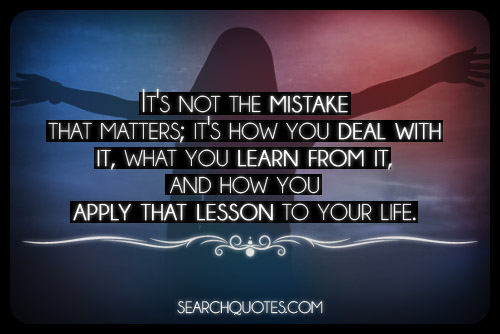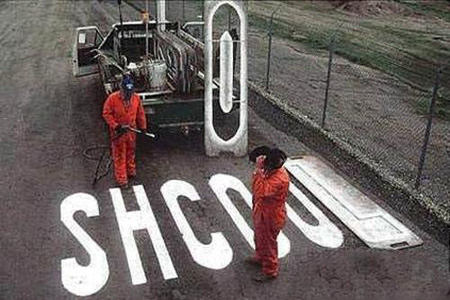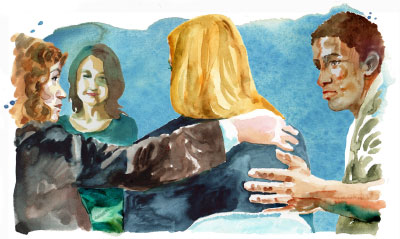
“It’s not the mistake that matters; it’s how you deal with it, what you learn from it, and how you apply that lesson to your life.” -Searchquotes.com
Keep this in mind whenever you find yourself dealing with mistakes.
It does not matter if you are the one making the mistake or if you are around to deal with the mistake, we all have to deal with the mistake together as a team. There is a lot to learn from the mistake that can make you and the other person better because of how you both deal with it, how you both learn from it, and how you both apply the lessons.
Today, we are going to take a look at the following three questions:
-
What is a mistake?
-
What are three negative consequences that causes a person to avoid other people when a mistake has been made?
-
What are the six steps towards helping someone recover from a mistake?
Now that we have the questions, let’s find the answers!
What is a mistake?
Merriam-Webster defines a mistake as:
-
To understand (something or someone) incorrectly.
-
To make a wrong judgment about (something).
-
To identify (someone or something) incorrectly.
A mistake is simply where we can be wrong about someone or something.

What are three negative consequences that causes a person to avoid other people when a mistake has been made?
Although mistakes are unavoidable, people still try to avoid them because of the negative consequences that come from them. I will give three consequences below:
-
Negative judgement.
- When a person makes a mistake, people can tend to judge a person negatively and try to define them as a failure or an idiot.
- This can lead to a person becoming a social outcast and having low self-esteem.
-
Harsh language.
- For some people, they think applying profanity or derogatory remarks towards a person who has made a mistake will motivate them to do better.
- It can lead to a person feeling emotionally broken and letting those words define who they are.
-
Some type of violence.
- In some cases, a person may wind up hitting or hurting another person for the type of mistake they made and want them to physically feel their pain.
- Depending on the action, it can result in either a bruise, broken bones, legal action, or even death.
When a person feels that they cannot make a mistake because of the negative consequences, he or she tends to be afraid of his or her own decision-making. When that happens, you find a person who is afraid to take chances, learn from the mistakes, and move forward. The person learns to accept, become, and give out (in some cases) the negativity that was given to him or her by someone else.
What are the six steps toward helping someone recover from a mistake?
Mistakes are going to happen, whether we want them to or not. How we choose to help a person fix a mistake can make a difference in his or life moving forward. Here are six steps you can take towards helping someone recover from their mistake, or even guiding someone towards helping you to rebound from your own mistakes.
-
Understand the situation.
- Take the time to gather in the information through research and asking questions.
- Fully understanding the situation can help you better understand the mistake versus assuming the mistake.
-
Talk to the person who made the mistake without prejudice or bias.
- Talk to the person and allow for him or her to speak about the mistake that was made without judgment.
- Allowing the person to speak creates dialog and gives you a chance to understand the person and how that person made the mistake.
-
Find the proper resources to help the person move past the mistake.
- Get the person the help, guidance, people, and/or things needed in order to recover from the mistake.
- With resources, a person stands a fighting chance of recovering and moving forward because they have the tools.
-
Help plan out the recovery.
- With the resources in place, help the person to create a plan so that they can rebound from the mistake.
- With a solid plan in place, a person can begin to start recovering from the mistake and moving forward.
-
Encourage them get back up and move forward.
- With everything in place, give the person inspiration and motivation to get them going again through your positive words, thoughts, and/or actions.
- When a person is inspired and motivated, it lights a fire under them to get back up and move on.
-
Be available in the future.
- That same person will run into more mistakes in the future because it is human nature.
- That person will probably need you again because of what you did to get him or her past the last mistake.
- This can be done in person, by phone, by email, or even by social media.
- Being available in the future gives that person reassurance that you can be counted on whenever an issue comes up.

I encourage you to look at the next mistake cause by you or someone else closely. Understand that how you or someone else deals with that mistake can affect your futures together. Here is how that works:
-
For the person who made the mistake, it can be the difference between being deciding to quit or deciding to move forward.
-
For the person who helping out, it is the difference between becoming a negative influence or becoming a positive resource to the person in need of help.
Let’s remember that dealing with a mistake is a team concept and how we choose to deal with the mistake as a team can be the difference in all of us reversing course, standing still, or moving forward.

I have four questions to ask that I would love for you to give some thought to. Feel free to answer and comment below:
-
What was the most memorable mistake you were apart of (either as the person who made it or having to deal with someone who made the mistake)?
-
How did you deal with the mistake?
-
What was the results of dealing with the mistake for everyone involved?
-
What advice would you give to someone deal with the mistake as you did?
Your answers can help yourself or someone understand that mistakes are going to happen, but we must understand how to deal with them together if we want to be successful collectively.





You’ve given me a new perspective and I appreciate it. How to deal with another’s mistake is something I haven’t really considered. I’m always trying to improve my ability to interact socially since it’s something I struggle with. Posts like these are gold!
LikeLiked by 1 person
Thank you for your comment, insight, and appreciation Red Mountain! When we learn to deal with mistakes together, we can both learn and grow!
LikeLiked by 1 person
I like how you focused on helping others overcome their mistakes instead of individually recovering from a mistake like most of everyone else did. It’s new.
LikeLiked by 1 person
Thank your comment, insight, and appreciation Dreamer! I decided this approach because a mistake involves more than just the person who makes. When a team approach is taken, we can fix just about anything!
LikeLiked by 1 person
As a teacher, I love this. I try to teach my kiddos that it’s OK to make mistakes. And we learn from them and come out stronger!
LikeLike
Thank you for your comment and insight Divya! It is good to see that you are teaching your kids that it is okay to make mistakes because they can learn and become stronger for it.
LikeLike
I have only just come across this blog and I am so glad I have. This post is so thought provoking, thank you for sharing. I am following your blog I can’t wait to read more!
LikeLiked by 1 person
Thank you for your comment and appreciation Katie! It means a lot to have you as a follower of the inspiration!
LikeLiked by 1 person
Hi Michael, I found your blog at Jacqueline’s party. I always appreciate inspirational and motivational people. I look forward to spending more time here soon.
LikeLiked by 1 person
Thank you for your comment and appreciation Rbaldwin! I hope that you are able to spend time here and receive inspiration!
LikeLiked by 1 person